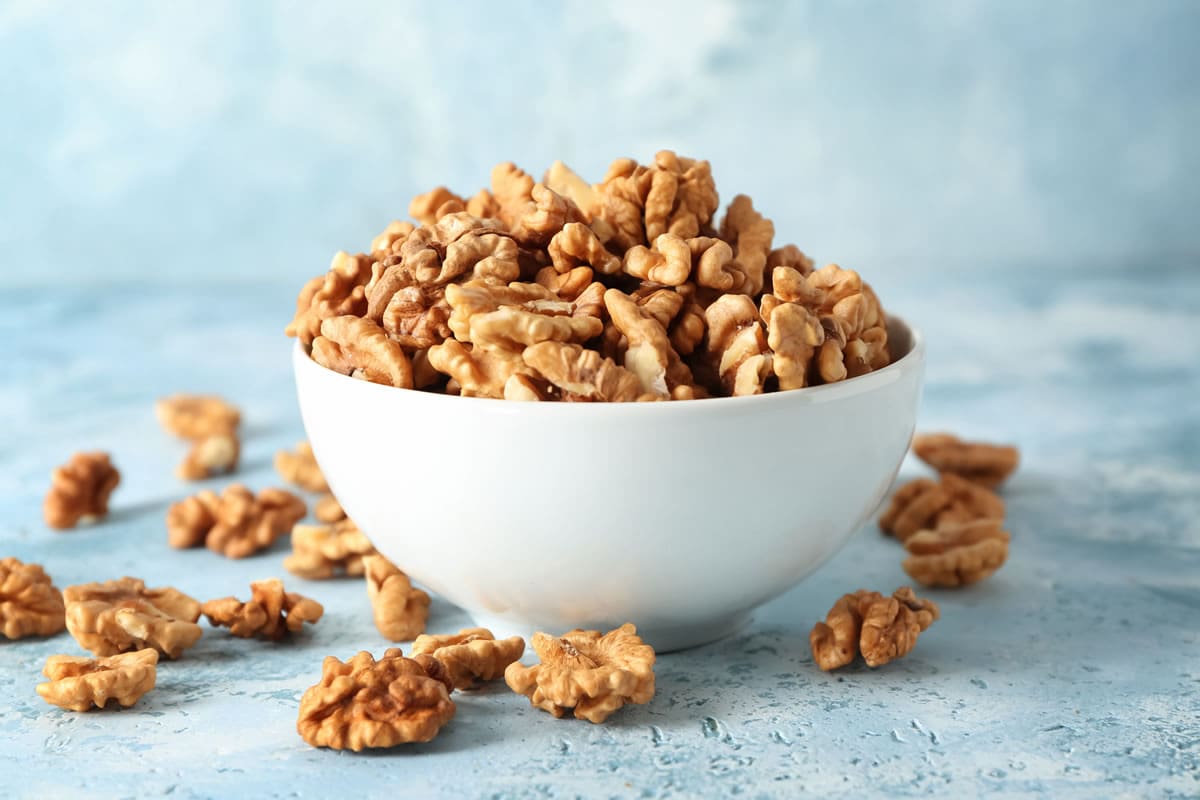Walnuts contain a complex array of natural compounds that exhibit a wide range of health benefits. A new study finds they may offer some protection against ulcerative colitis.
Inflammatory bowel disease (IBD) is a chronic inflammatory condition of the colon and rectum. Ulcerative colitis and Crohn’s disease are the two main types of IBD. Ulcerative colitis affects the colon whereas Crohn’s disease can occur in any part of the intestinal tract. These painful and debilitating conditions affect one in 250 Australians aged between 5 and 40.
Observational studies find that eating a high-fat diet and also high red meat diet are linked to a higher risk of developing IBD. On the other side of the coin, diets high in fibre and plant-based foods including fruits, vegetables and nuts are linked to some level of prevention during remission from IBD. One plant food that has attracted the attention of researchers in the IBD area is walnuts.
Walnuts contain high levels of the omega-3 fat alpha-linolenic acid and a favourable omega-3 to omega-6 fat ratio which makes them more anti-inflammatory. Walnuts are also a good source of fibre and contain a range of antioxidants linked to protection against heart disease, diabetes, cancer and inflammation.
How do walnuts fare in helping to control the rampant inflammation seen in the colon during a flare up of ulcerative colitis? That was the question that United States researchers considered in a study of mice using a chemically induced model of ulcerative colitis.
Mice were fed a standard Western diet with varying amounts of freshly ground walnuts up to the equivalent of 20 to 25 walnuts each day. Two weeks later, the mice were given the chemical dextran sodium sulphate which damages the lining of the colon and causes IBD-like inflammation and ulceration.
Supplementation with the highest amount of walnuts showed a significant reduction in ulceration by 7.5 percent 10 days after the colon damage. The beneficial effects of the walnuts may be due in part to what is known as pre-conditioning.
This is where the colon lining undergoes some level of protective metabolic change, allowing it to better withstand the inflammatory trigger that sets off ulcerative colitis. There was also a favourable change in a range of metabolites of fatty acids and oxidation enzymes in the colon and in faecal samples for rats on the walnut diet. These changes could be the key link in connecting walnuts to an anti-inflammatory benefit.
Implications
The research team who ran this mouse study now have human clinical trials underway to see if walnut supplementation can change the colonic metabolites and gut microbiota of volunteers. This work will help pave the way to see if walnuts could become a ‘recommended’ food for people suffering from the painful condition of ulcerative colitis.

